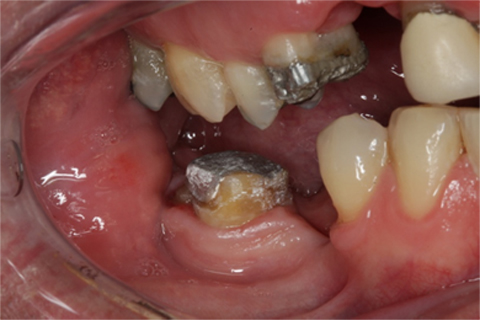Crowns: Principles, Planning and Preparation course for Dental Practice



This session will provide an introduction to the basic concepts underlying the provision of crowns.
Learning Objectives
By the end of this session you will be able to:
- Identify the main features of a restored tooth
- List the benefits of a crown
- Compare the different types of crown
- Identify the principles that guide how a tooth should be prepared for a crown
This session will explore the rationale for the provision of these restorations and the basic underlying principles that guide the preparation of teeth in order to be restored with a crown. Such an understanding is vital in order to apply new knowledge and materials to the clinical scenario.
Before commencing this session you should:
- Have previous knowledge of dental materials
Stephen completed his undergraduate training in Liverpool in 1995 and worked in a hospital full-time for three years before sharing his time between general dental practice and hospital for a further seven years. He was granted entry onto the Specialist list in Oral Surgery in 2002.
Stephen commenced his specialist training in Restorative Dentistry in 2005 during which time he has obtained an MPhil and MRDRCS qualification. He currently sits on the Specialist Registrars in Restorative Dentistry Group Council and represents the restorative registrars on the Intercollegiate Specialty Exam Board. He represents the dental registrars on the BMA’s Junior Doctors Committee.
He acts as a reviewer for the International Endodontic Journal and has a keen interest in lecturing to postgraduate practitioners in the Manchester area.


Julian graduated from Cardiff in 1996 and then moved to Bristol, working in both general practice and hospital posts. Following a short period in Surrey and completion of the Fellowship in Dental Surgery of the Royal College of Surgeons of England (FDS), he returned to Bristol early in 1999 as a Lecturer in Restorative Dentistry, completing the Membership of the Faculty of Dental Surgery of the Royal College of Surgeons of England (MFDS) shortly after. He then moved to London to undertake a Masters degree in Conservative Dentistry at the Eastman Dental Institute which was awarded (with distinction) in October 2001.
He has been at The University of Manchester School of Dentistry since 2001, where he completed specialist training in Restorative Dentistry, together with a PhD in Biomaterials Science. He is currently Senior Lecturer and Honorary Consultant in Restorative Dentistry, and Director of the University’s MSc programmes in Periodontics and Fixed & Removable Prosthodontics. He is an examiner for the Royal Colleges of England and Edinburgh, examining the Diploma in Implant Dentistry and the Membership in Restorative Dentistry (which is the exit qualification for specialist training).
His clinical work includes all aspects of restorative dentistry, and he has particular interests in complex/extensive treatments, toothwear, hypodontia, and restorations utilising dental implants.
- Oral Health | Clinical and Risk Asessment | Select...
- Posted By eIntegrity Healthcare e-Learning
- Posted Date: 2025-02-22
- Location:Online
- This session identifies the guidelines that support dentists in the selection of the most appropriate dental radiograph. It further explains how dentists incorporate the guidelines into dental practice.
- Oral Health | Clinical and Risk Asessment | Reflec...
- Posted By eIntegrity Healthcare e-Learning
- Posted Date: 2025-02-22
- Location:Online
- This session describes the principles and techniques of reflective practice, and how to incorporate them into everyday primary or secondary care clinical practice.
- Oral Health | Clinical and Risk Asessment | Princi...
- Posted By eIntegrity Healthcare e-Learning
- Posted Date: 2025-02-22
- Location:Online
- This session provides a framework that underpins the approach to preventative measures. It outlines the issues that need to be considered when determining how best to provide effective and efficient care.
- Oral Health | Clinical and Risk Asessment | Princi...
- Posted By eIntegrity Healthcare e-Learning
- Posted Date: 2025-02-22
- Location:Online
- Treatment planning is built on the foundation of history, examination, special tests and diagnosis. Only a thorough approach to these can lead to a successful treatment plan.
- Oral Health | Clinical and Risk Asessment | Perfor...
- Posted By eIntegrity Healthcare e-Learning
- Posted Date: 2025-02-22
- Location:Online
- This session describes the processes for performing extra-oral and facial examinations, and the reasons for carrying them out.







